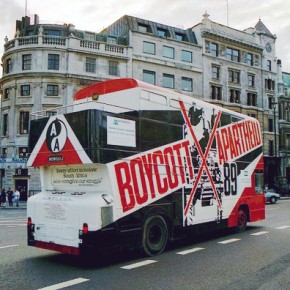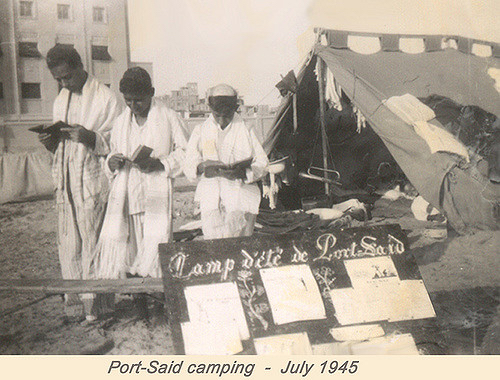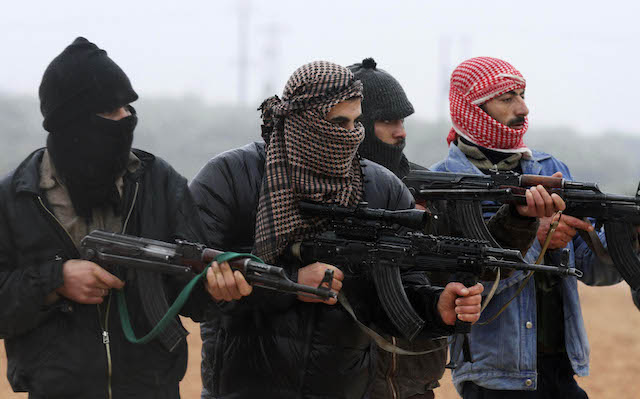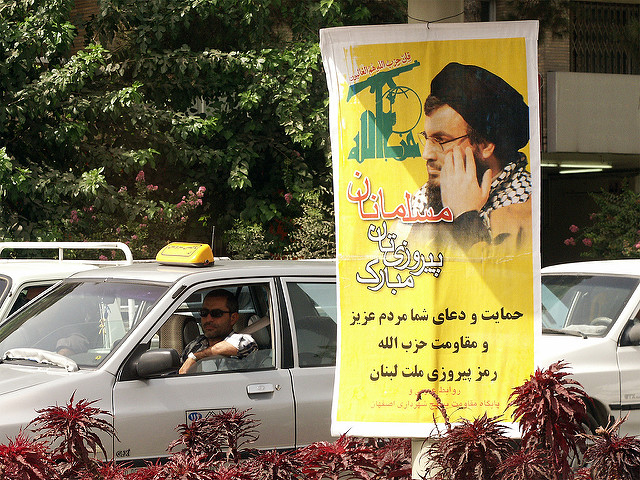The writing is on the wall. Saudi Arabia, in its current form, is destined to self-destruct. The question is what will succeed it. And if it’s the Saudi-we-know that will collapse, we’re already seeing indications of Saudi-to-be in the violent, and ineffective Nitaqat Program.
Nitaqat is part of a number of reforms that are meant to prove how the country can meet the demands of the Arab Spring without dissolving its monarchy. In the labor market, these efforts are being called “Saudization.”
It’s exactly what it sounds like: the replacement of migrant workers with native Saudis, in the interest of lowering the national unemployment rate of 5.5%. Youth unemployment also continues to skyrocket, pressing the government to open employment in order to prevent an unemployment time bomb that could very well topple the House of Saud. Nitaqat is a not-so-secret way of opening jobs for Saudis by deporting foreign workers.
The official line is different, though. Saudi Arabia claims to be cracking down on the illegal practice of kafeelas (sponsors) facilitating the entry of foreign workers, and providing them with legal cover as they seek work. As the Saudi government is aware, this is done with a huge percentage of migrant workers in the country, on a large enough scale that it is a major engine of the country’s economy. Corrupt kafeelas supply the richest areas of Saudi Arabia with the cheap labor it needs to maintain its luxury lifestyles, while still dehumanizing the workers that make it possible, through construction, retail work, and street cleaning.
This crackdown is a violent attempt to refocus lower-class areas of the Saudi labor market away from migrant laborers. 110 000 migrant workers were expelled from Saudi Arabia during its first month, with many more deportations to be expected into the New Year, as millions of workers continue to be told to impossibly ‘regularize’ their visa status through different sponsorship arrangements. Human rights groups have fiercely criticized Saudi Arabia for the violence that has accompanied the crackdown, which has mainly affected migrant workers from Yemen, and the Horn of Africa. Journalists usually cover this through police brutality, which is important, but it also occurs through the indirect results of anti-migrant propaganda that always accompanies efforts like these. For a variety of reasons, the popular support that is stirred up by these campaigns turns into stoked brutality, which has led to Saudis subjecting laborers to murder, rape, and assault.
Not surprisingly, the Saudi-izing of these suddenly free jobs isn’t going as smoothly as planned. Many shops have closed, or are not working at full capacity. Employers are complaining that Saudi workers are lazy and undisciplined, because they are less likely to work long hours for little pay, and deal with verbal and physical abuse from the country’s upper-class citizenry. The Guardian’s Brian Whitaker is currently documenting the various crises that resulting from these convulsions: fresh food shortages, rubbish piling up on city streets, and so on.

The problem is not so much that Saudi Arabia didn’t see this coming as that it didn’t have a choice. The entire Gulf has become far too reliant on migrant labor. In the wake of the Arab Spring, the region has suddenly been forced to confront the potential upheaval that its reliance on migrants has built into their economies. The Saudi monarchy wishes to show that its intervention can substantively fix address such vulnerabilities, in order to prevent a revolt. However, its attempts to reform itself, while simultaneously maintaining its commitments to Salafi fundamentalism, are only possible through increasingly explicit forms of violence and discrimination. There are two clear examples of this right now, one being a case study of labor unions in Mecca, and other being policy subset of Saudization.
Mecca witnessed a strike last month by 7000 cleaning workers who were demanding a promised renewal of their residency visas. The response was an agreement by five cleaning companies in Mecca, who pledged to hire custodians from multiple countries rather than simply one. Aside from the racism that underlies the agreement, it also betrays huge contradictions that prevent substantive reform in the Kingdom.
The most significant is that Meccan cleaning companies pledged to expand their reliance on migrant workers, by seeking them in more countries, at the same time that the monarchy is pressing Saudization. These are the types of conflicts that require a massive overhaul of the country’s labor market, in order to address them properly, but cannot happen under monarchical rule in its current form, mainly because the House of Saud has a completely logical fear that “massive overhaul” means “end of monarchy.”
Saudization also comprises a half-introduction of women into the workforce through “feminization.” I say “half-introduction” because women are only being allowed to work in shops that are designated “woman-only.” Jewelry, and lingerie, stores have been hit particularly hard by these new regulations, which assume a skilled female retail base that does not sufficiently exist in a country like Saudi Arabia, where labor is heavily restricted along gender lines.
Even in the thousands of shops that have been successfully “feminized,” there is the additional problem of the practice deepening gender segregation. Saudi Arabia may be attempting to develop a modern market economy, but it wants to do so within the scaffolding of traditional Salafi gender policy. Although combinations of the two are possible, considerations of both eventually have to change. Otherwise, increased authoritarianism is the only way to maintain the status quo.
And that appears to be the order of the day in Saudi Arabia. The monarchy is terrified by the revolutionary winds that were generated two years ago. However, it is very adaptive. Saudi Arabia has previously survived, and arguably coopted, two other major revolutionary trends in the Middle East: Arab nationalism, and Islamism. Now, it is adapting to the Arab Spring. And it is doing so through approaches that are mired in contradictions and increasingly dependent on violence.
But what else is new? Saudi Arabia has always favored hypocrisy. It is simply more noticeable now, and is necessitating explicit forms of violence, when before, that violence was mostly hidden. Some of my friends in the country have said that the labor force reforms are the beginning of the end. I am also optimistic that they will inadvertently force greater reforms. However, it is equally possible that new forms of violence, and autocracy, will become normalized in order to sustain the monarchy.
Photographs courtesy of Zamanalsamt and Kelly Hart. Published under a Creative Commons License.






2 comments